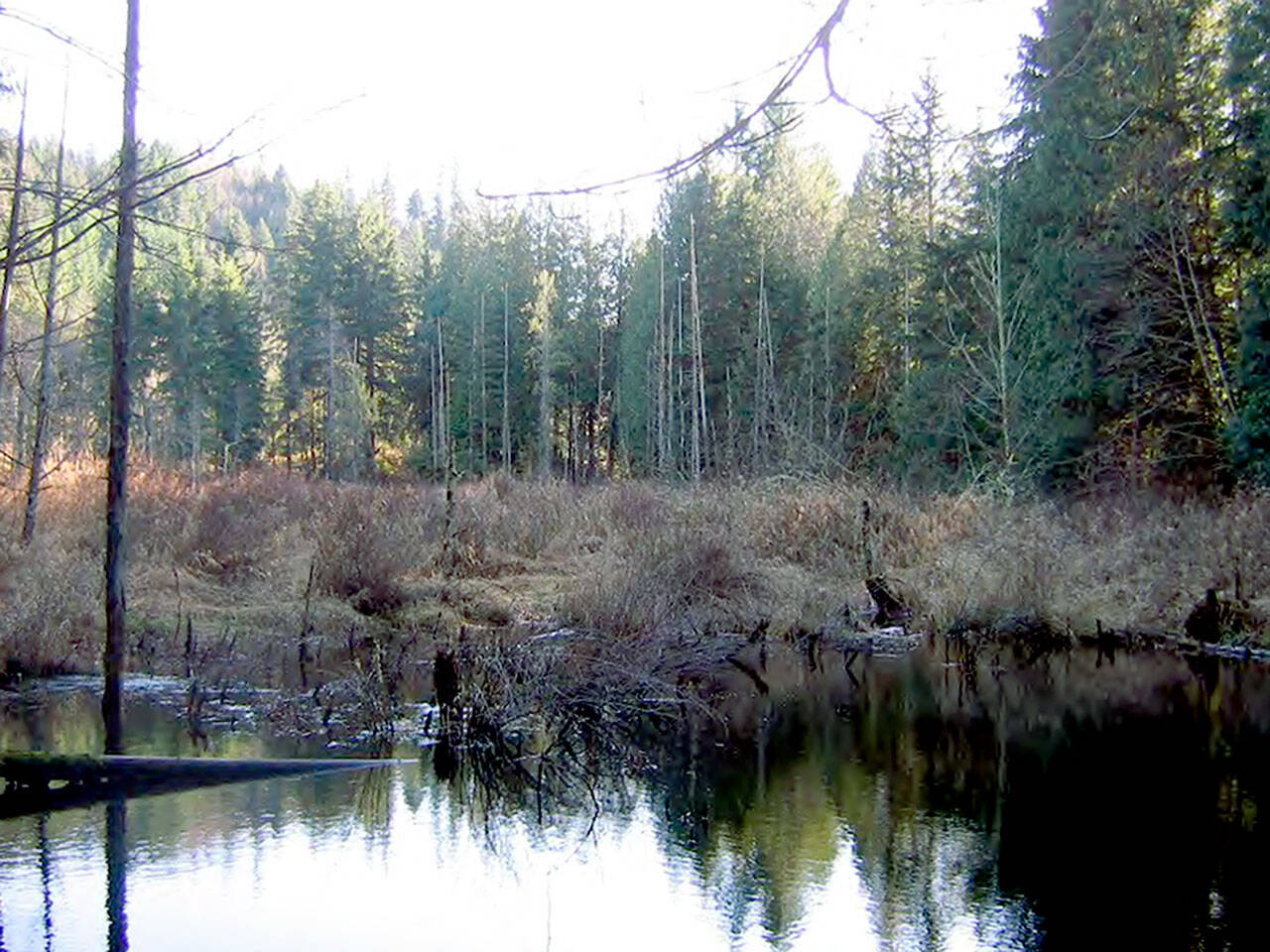GRANITE FALLS — A once nameless swamp now has a name — though you’ll likely never see it.
Earlier this week, the state Department of Natural Resources confirmed the name Holland Marsh for the swampy body of water somewhere near Granite Falls.
It’s named after the late Andy Holland, an Everett Community College teacher and fire lookout who taught generations of people to pursue forestry. The 8-acre wetland sits on state and private land somewhere near Granite Falls.
There’s no place to park. No trails. No easy way to see the newly named marsh.
Andy’s nephew, Chuck Holland, prefers it that way. He wants the marsh to remain a natural oasis, framed by a “cathedral of trees,” uninterrupted by human activity.
Chuck Holland inherited some of the surrounding forest from his uncle and maintains it to this day as a tree farm, a few miles south of Granite Falls. He pitched the name as a tribute.
“This is part of my idea to a legacy,” he said. “A legacy to Andy, and all he’s done for others.”
In April, the proposal was endorsed by the state Department of Natural Resources Committee on Geographic Names.
Then, on Tuesday, the department’s Board on Geographic Names approved that recommendation.
In his book “Switchbacks,” Andy Holland recounted his time as a fire lookout in the 1930s — long before technology and social media flooded the mountains of Western Washington with weekend warriors.
His most dramatic moment, he wrote, came when he got appendicitis while stationed on Miners Ridge, and opted to stay rather than suffer a “jolting ride on horseback” 20 miles down the mountain, then bounce in a truck to Darrington for another 30 miles. He chilled his swollen side with snow and lived on a liquid diet for two weeks. Eventually, he got well enough to hike down himself.
“In the many summers that I worked for the U.S. Forest Service, I had some startling adventures, but that one, in my second year as a lookout, turned out to be the most dramatic of my career,” he wrote. “Never again, even when forty feet from a grizzly down a forest trail, did I come as close to death.”
Holland ended his book with a call for preserving wilderness.
“In a day of accelerating change, I believe the wilderness satisfies a deep human need for permanence that is as vital as food itself,” he wrote. “Here in the primeval forest, people can find insulation from the instability of change.”
He continued: “Here their inner natures can harmonize with visual nature and thus integrate the feelings that energize their lives. I hope the guests of wilderness will continue to become the advocates for its survival, dedicated to preserving part of the earth in its original form so that humanity can always have access to the basic virtues and values of nature.”
Zachariah Bryan: 425-339-3431; zbryan@heraldnet.com; Twitter: @zachariahtb.
Talk to us
> Give us your news tips.
> Send us a letter to the editor.
> More Herald contact information.

























